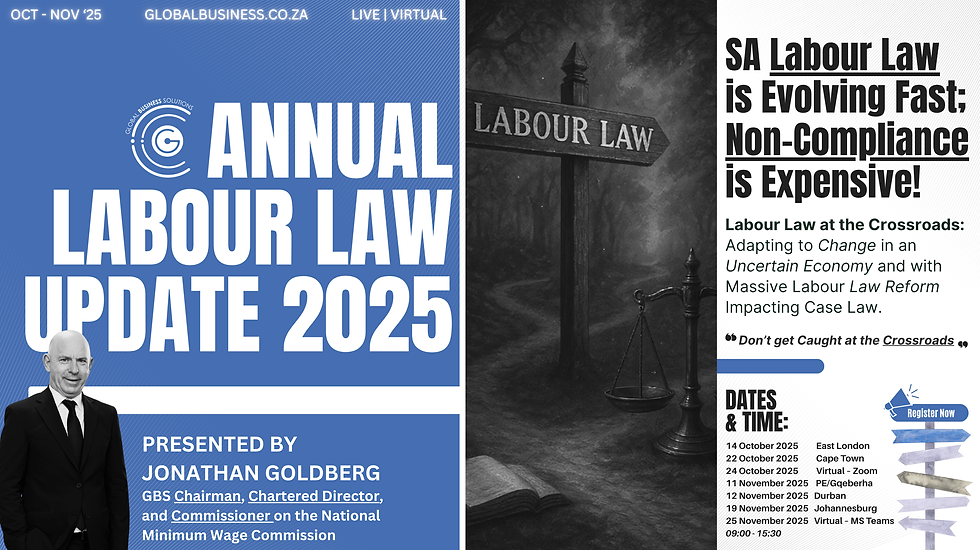From Policy to Prosperity: Is BEE Empowering the Many or Enriching the Few?
- Cindie Muller

- Nov 26, 2025
- 2 min read

In the two decades since its inception, Black Economic Empowerment (BEE) has been both a cornerstone of South Africa’s transformation agenda and a lightning rod for debate. Designed to redress the economic injustices of apartheid, BEE aimed to create a more inclusive economy by promoting black ownership, management, and participation in business. But as we reflect on its impact, a provocative question emerges: Is BEE truly empowering the many or merely enriching the few?
The Promise of BEE
At its core, BEE was never just about ticking boxes. It was about shifting the economic landscape to reflect the country’s demographics, unlocking opportunity, and fostering sustainable growth. The vision was bold: a thriving black middle class, flourishing black-owned enterprises, and a diversified economy where everyone could participate meaningfully.
The Reality Check
While BEE has undeniably opened doors for many, critics argue that its benefits have been unevenly distributed. A recurring concern is the rise of a small elite who have disproportionately benefited from deals and tenders, while the majority remain economically marginalised. Compliance-driven scorecards have sometimes incentivised superficial transformation over substantive change.
Beyond the Scorecard
To move forward, we must ask tough questions:
Are we measuring empowerment by ownership percentages or by real economic participation?
How do we ensure that BEE supports entrepreneurs in townships and rural areas, not just boardroom deals?
Can we evolve BEE to better support innovation, youth employment, and digital inclusion?
Reimagining Empowerment
The next chapter of BEE must be about broad-based, grassroots empowerment. That means:
Supporting black SMEs with access to capital, markets, and mentorship.
Prioritizing skills development and education to build long-term capacity.
Encouraging inclusive procurement that benefits entire value chains.
Join the Conversation
BEE is not a static policy it’s a living framework that must adapt to the times. As business leaders, policymakers, and citizens, we all have a role to play in shaping its future.
Let’s move beyond compliance and toward true economic justice.
Join us at the Annual Labour Law Update. This year's theme is Labour Law at the Crossroads: Adapting to Change in an Uncertain Economy and with Massive Labour Law Reform Impacting Case Law. What you'll gain:
Master the Digital Transformation of Labour Law in 2025
200+ Labour Law Cases Unpacked by Jonathan Goldberg
Critical Updates on Upcoming Legislation & NEDLAC Amendments
Navigate Workplace Challenges from the Digital Era to Discrimination Laws

View our upcoming events: Upcoming Events and Qualifications, like Employment Equity Reporting, Managing Absenteeism in the Workplace, #ALLU2025, Advanced Occupational Certificate: HRM Officer (NQF 6), and Advanced Occupational Certificate: HRM Officer (NQF 6).
*All workshops are offered as customised in-house training that can be presented virtually or on-site.
"Global Business Solutions (GBS)—Your Partner in Strategic HR Compliance"










Comments